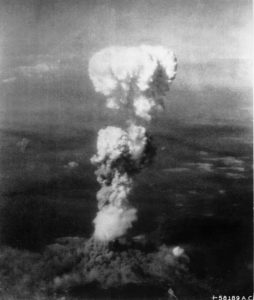I have always been fascinated by chickenhawks. No, not the bird variety but the human types. These are people who advocate that the U.S. government should go to war against some foreign power while, at the same time, making it clear that they, the chickenhawks, are not to be included in the military forces that will be going to war.
In other words, chickenhawks are widely known for their bravery when it comes to war, only their courage is reflected by their willingness to sacrifice U.S. soldiers, not themselves, in the war.
Today, there are chickenhawks calling for NATO to accept Ukraine as a member. They say that this would not only keep Ukraine safe and secure but would also protect Europe from a Russian invasion.
One of the things that fascinates me about chickenhawks is the unwillingness of many of them to travel to Ukraine to help Ukrainians in their hour of need. After all, there have been a number of Americans who have done that. What’s up with the chickenhawks who refuse to do that? Why can’t they do that too? Instead, they remain here in the United States working in nice, safe, and secure homes or office buildings.
Oh, I’m sure that senior chickenhawks would say that they are too old to join the Ukrainian military, but isn’t that just a cop-out? There are all sorts of jobs in the Ukrainian government that senior chickenhawks could do to help out. It seems to be that chickenhawks are just dodging their own responsibilities while, at the same time, expressing their willingness to sacrifice American troops in a U.S. war against Russia.
At the beginning of the Russian-Ukraine war, many chickenhawks were doing their best to revive Russia into a gigantic fearful monster that was, once again, coming to get us, like it supposedly was during the Cold War. Yet, that notion has obviously disintegrated, given that Russia can’t even conquer Ukraine. At the risk of belaboring the obvious, if Russia can’t even conquer Ukraine, how is it supposed to be able to cross the ocean and come and conquer the United States? Or even Europe for that matter?
Nonetheless, many chickenhawks continue to maintain that the Russians are coming to get us, just like during the Cold War, albeit without the communist label. Of course, there is still Red China though, which is now being ginned up as another renewed official Cold War enemy. That’s what all the brouhaha over Taiwan is all about — ginning up a new/old official Red enemy to keep Americans agitated and afraid and, therefore, supportive of ever-increasing budgets for the national-security establishment and its highly dangerous and destructive foreign-policy racket.
One thing is for sure about chickenhawks: You will never see them addressing and confronting the role that NATO played in bringing about the Russian-Ukraine war. That’s because the Pentagon, the CIA, and the NSA — the three principal components of the U.S. national-security state — are considered to be a triune god for chickenhawks, one that they adore, praise, glorify, and never, ever question.
 There is one big issue, however, that I don’t think many chickenhawks have thought about yet. If Ukraine were to join NATO, the war that is currently a proxy war between the United States and Russia would be immediately converted into a direct war between the United States and Russia, which almost certainly would quickly turn out to be an all-out nuclear affair. That’s because NATO’s rules and regulations would require that the United States go to war against Russia to defend Ukraine.
There is one big issue, however, that I don’t think many chickenhawks have thought about yet. If Ukraine were to join NATO, the war that is currently a proxy war between the United States and Russia would be immediately converted into a direct war between the United States and Russia, which almost certainly would quickly turn out to be an all-out nuclear affair. That’s because NATO’s rules and regulations would require that the United States go to war against Russia to defend Ukraine.
That would mean a considerable number of deaths of Americans from Russian nuclear attacks on the United States. Sure, the United States would end up “winning” such a war, given its superior nuclear technology, but the costs of “winning” would be enormous in terms of death and destruction.
What chickenhawks have yet to realize is that they could be one of those nuclear casualties. When that hits them, my hunch is that chickenhawks will quickly stop chirping about the need for the U.S. government and NATO to make Ukraine a member of this dinosauric Cold War entity.



